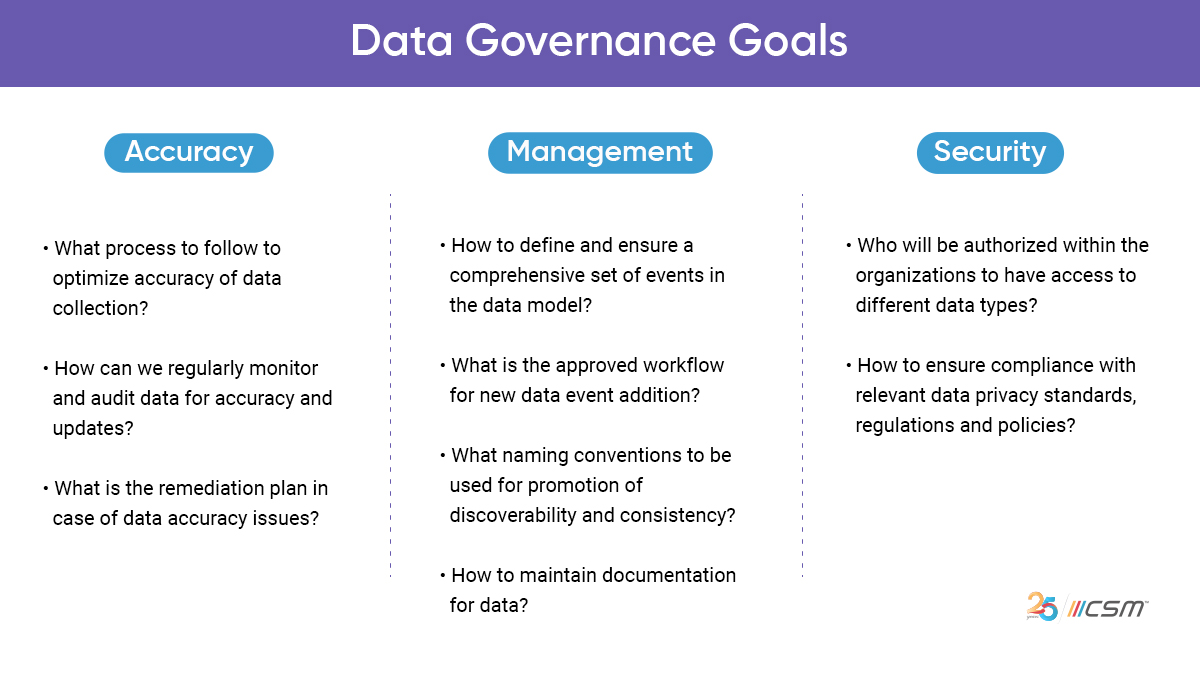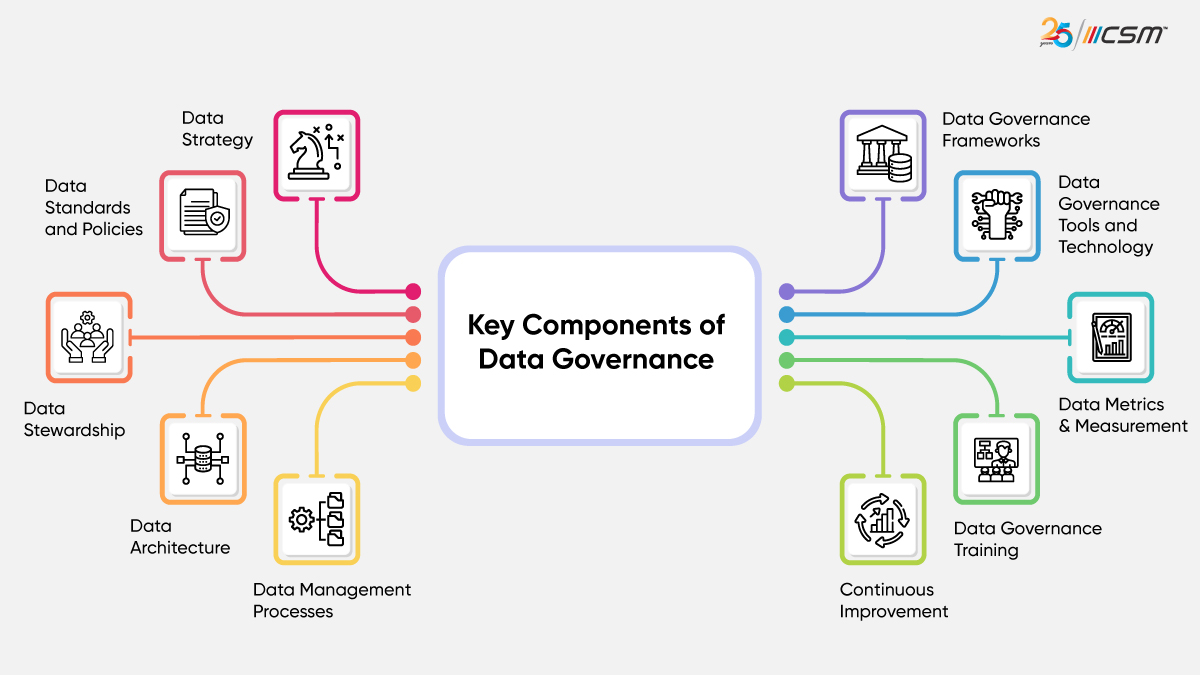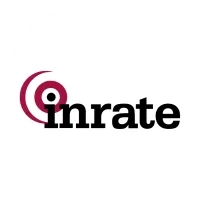If your business is about delivering exceptional digital experiences, you already realize the value of your data. In today’s age, there is a constant need for evolving digital experiences, which further requires an evolution of datasets. And this is why every organization dedicated to digital transformation must prioritize data governance and its two elements- data collection and management.
In this guide, we will discuss what data governance is, why it is crucial, role of data governance in the digital lifecycle, components of data governance, and benefits of data governance.
What is Data Governance?
Data governance basically refers to a set of policies, processes, and standards that ensure data accuracy, consistency, and security. It dictates ways in which data can be accessed and used by users. In these times when data-driven decision-making is non-negotiable, it is crucial to maintain and update data accuracy. Thus, data governance is the foundation on which businesses build their organizational strategies. When implemented precisely, data governance enables you to gain value from your data. It also enables senior leaders to make better decisions and empowers professionals with accurate data to deliver customers with reliable information.
Data governance also enables compliance experts to verify adherence to regulations, eliminate risks, and protect sensitive information. By incorporating a well-defined data governance strategy, businesses can ensure data quality, management, and security.
Data governance can be segregated into three goals:
- Accuracy: to ensure that the data used for analytics is reliable and complete
- Management: to ensure that the data is labeled, structured, and stored in such a way that it facilitates consistency, discoverability, and usability.
- Security: to ensure that data is managed in compliance with standards and data privacy regulations for mitigating security threats and other risks.

Why is Data Governance important?
Without effective data governance, inconsistencies in data across various systems within an organization will not be identified and resolved. For example, there can be discrepancies in the listing of customer names and details across logistics, sales, and customer service systems. Such a scenario can complicate data integration process and lead to data integrity issues. This would ultimately impact the accuracy of business intelligence, analytics applications, and enterprise reporting.
Ineffective data governance also affects regulatory compliance efforts. This could result in complex issues for organizations that must comply with changing data privacy and protection laws such as the European Union’s GDPR and the California Consumer Privacy Act(CCPA). A well-defined data governance strategy for an enterprise typically includes creation of standard data formats and common data definitions that can be applied across all business systems. Such a strategy enhances data consistency for both compliance uses and overall business.
Role of data governance in lifecycle of a digital event
Data governance can be applied to a wide range of data types. In this article, we will focus on data governance in events of digital products, services, and analytics strategy. While building a digital product or feature, your development team considers a specific user journey or expects the end-users to use the feature or product certain way. However, in today’s age of constantly evolving digital experiences, there are numerous potential user flows and journeys. This makes it is challenging to identify and define every user journey before release.
Thus, data governance framework helps product development, growth, and data teams to gain more clarity regarding ways to maintain a comprehensive, reliable dataset. Irrespective of how the user experience and interaction evolves, having a well-defined data governance in place will assist you to keep up with end-user behaviour insights.
Every digital user interaction is a digital event, and is basically the building block of data governance framework. A digital event is basically an instance of capturing granular detail of a user’s interaction with a digital asset. It includes instances like navigating to a webpage, filling out a form, or clicking on a button. Such events are critical as they provide access to digital experience insights.
Key Components of Data Governance

Beyond rules and policies, data governance involves establishment of technology and infrastructure, creation and maintenance of policies and processes, and identifying reliable individuals for managing and safeguarding various data types. The key components of data governance include:
- Data Strategy: It defines vision, goals, objectives and guiding principles that align with overall business objectives and goals for effective data management.
- Data Standards and Policies: It includes defining the approach in which data has to be accesses, managed, stored, and protected. Such policies ensure quality, compliance, and consistency as per regulatory requirements.
- Data Stewardship: It involves allocation of ownerships and accountability of data assets. Data quality, accuracy, and adherence to defined standards and policies are ensured by data stewards. They are also assigned to facilitate data related processes and provide guidance to users.
- Data Architecture: It includes defining data structures, models, integrations, storage, and access mechanisms that support effective data management.
- Data Management Processes: It defines the processes for effective management of data throughout lifecycle, incorporating data integration, acquisition, classification, quality management, security, and privacy.
- Data Governance Frameworks: It incorporates various roles, responsibilities, and decision-making processes related to data governance. It also ensures that all initiatives are planned, implemented, and monitored efficiently.
- Data Governance Tools and Technology: It specifies various tools and technologies that assist data management, data lineage tracking, metadata and quality management, and data access controls. Such tools facilitate process automation and provide granular visibility into data assets.
- Data Metrics and Measurement: This includes setting up metrics and measurements for evaluating the effectiveness of the data governance plan. Here, KPIs or key performance indicators are set to monitor progress, identify areas or scope of improvement, and present the impact and overall value of data governance.
- Data Governance Training: It involves conducting communication and training programs to ensure all relevant stakeholders recognize the importance of data governance. It also ensures that they are aware of their roles, responsibilities, policies, and processes. Such data governance training programs boost data literacy along with promoting a data-driven culture within organizations.
- Continuous improvement: It includes regular audits, reviews, and feedback phases to identify issues, challenges, and areas for improvement. This helps in reviewing effectiveness of data governance strategies and alignment of practices with evolving business and regulatory needs.
Benefits of Data Governance
Implementing data governance reaps many benefits for organizations. However, these can be broadly categorized under three key benefits:
- Improved decision-making: Data governance enables organizations to make decisions based on accurate and reliable facts. This eventually contributes to better business outcomes.
- Efficiency and cost-savings: With data governance, organizations can utilize accurate data to optimize and streamline business operations and processes. Businesses can improve efficiency, data quality, and eliminate manual data entry and cleaning. It enables more effective resource allocation, which further saves costs.
- Enhanced risk management and compliance: Establishing procedures and policies for data security minimizes risks of unauthorized access and data breaches. It also assists businesses in complying with data privacy and security regulations, eliminating the risk of penalties and securing sensitive customer data.
Conclusion
Data governance issues can interrupt business operations in organizations and impact revenue. Inaccurate and irrelevant data can only add to the challenges posed by poor resource allocation and multiple data silos. Data governance frameworks must be used by organizations to align all departments and teams, enhance overall efficiency, and increase business value. With the right frameworks and tools, you can effectively implement a data governance plan to derive actionable business outcomes.
The article was first published on CSM Blog Named: What is Data Governance? Why is it important for your business?



















